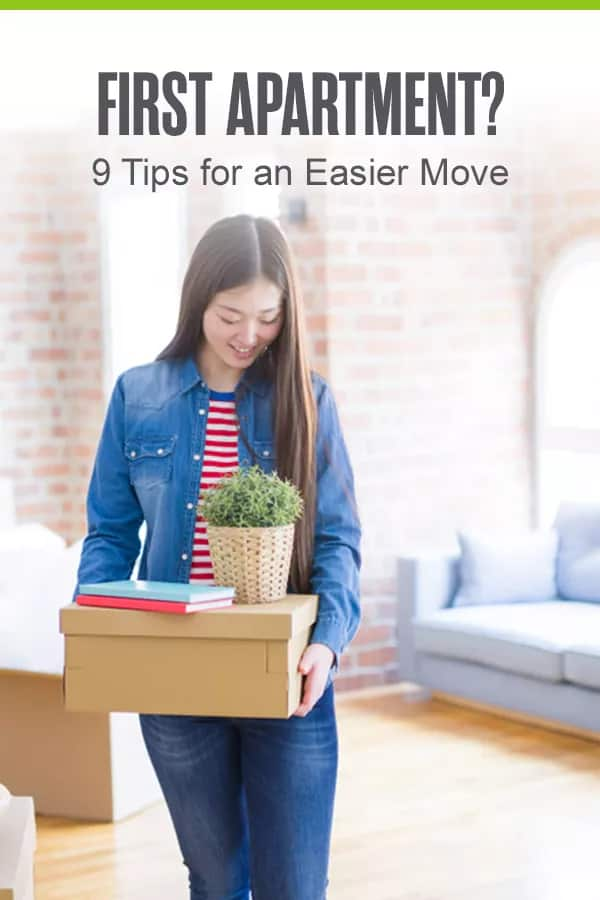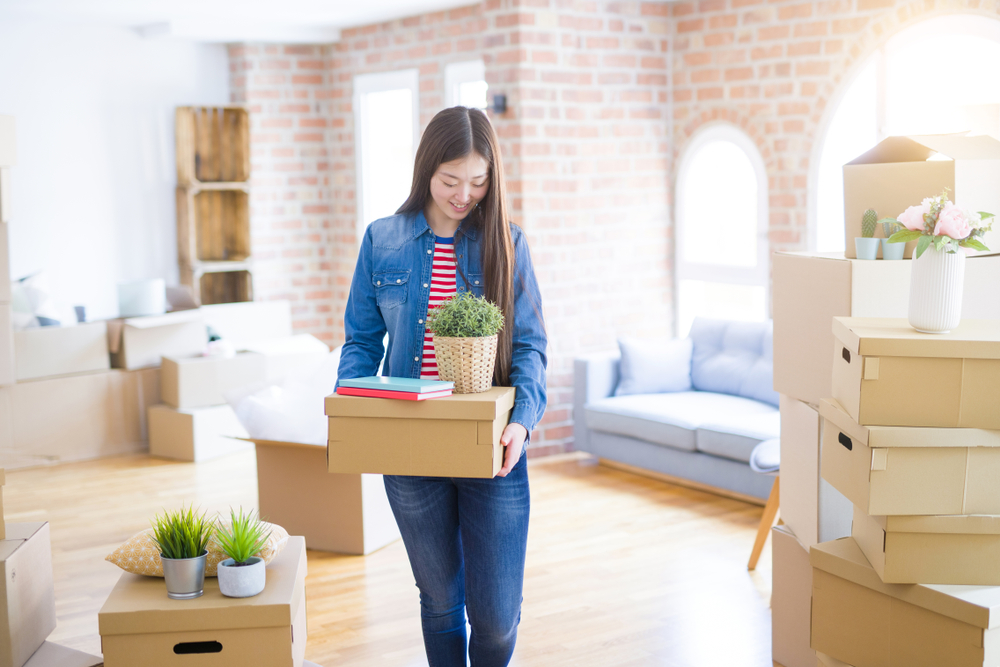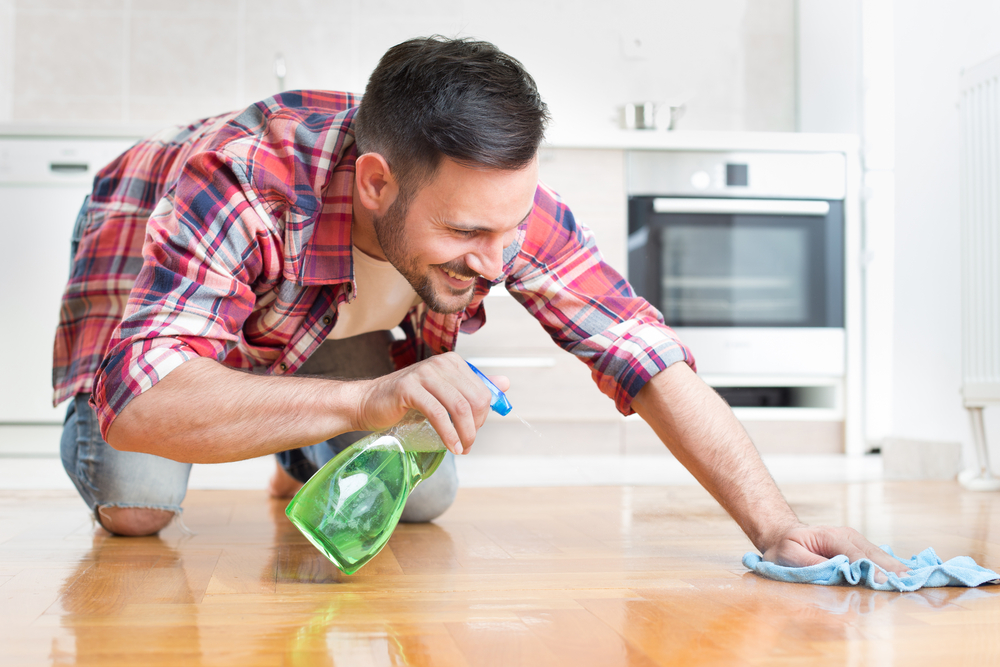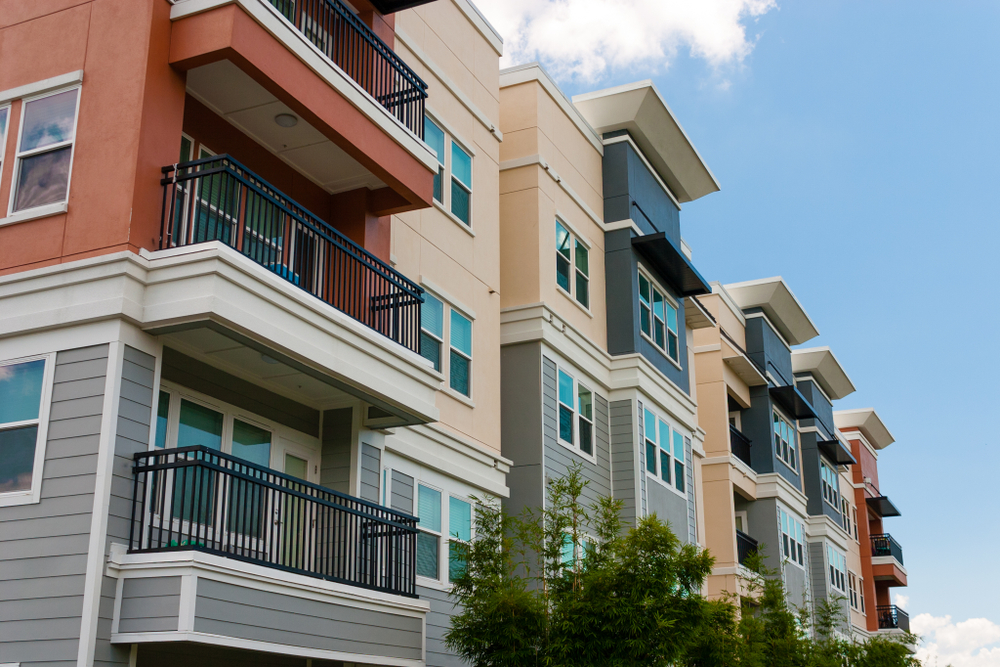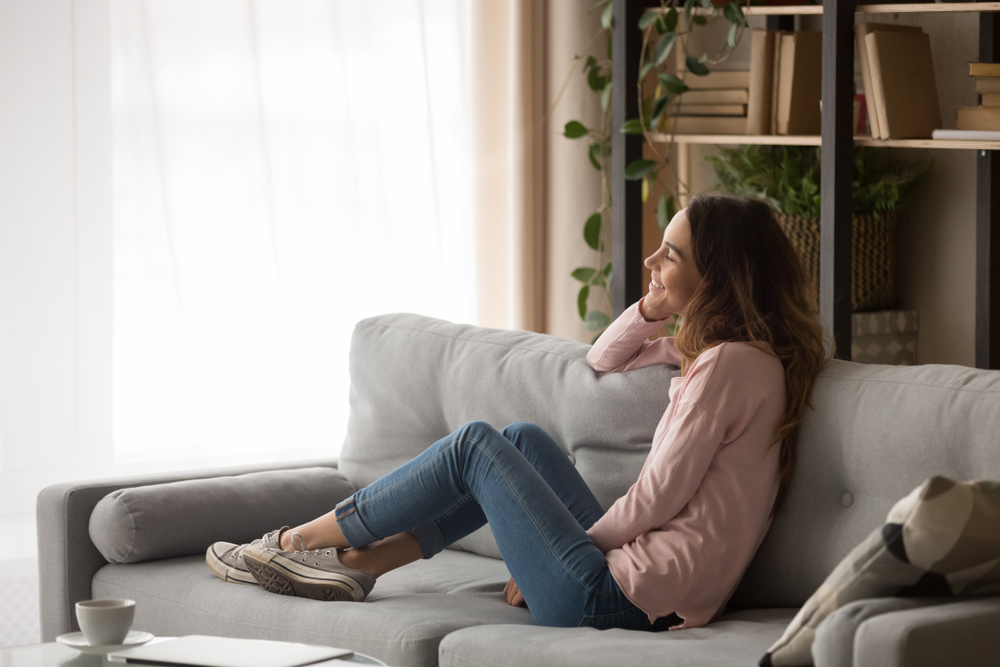Moving into an apartment for the first time isn’t as simple as signing a lease. Whether you’re heading to college, planning to live with a friend, or moving in with a significant other, there’s a lot to consider when choosing your first apartment. From calculating monthly expenses to ensuring you find the best location for your needs, these first apartment tips can help you get situated!
Research Apartments Thoroughly

Photo via @kaitlynn.guzman
Looking for an apartment? Online resources like Zillow, Apartments.com, HotPads, Trulia, and tons of others can help you find everything from studio apartments to multi-bedroom apartments in your city. When conducting your search, use filters to narrow down your options by price, number of bedrooms and bathrooms, and other amenities so that you can find a home that fits your needs—and don’t forget to look through apartment photos and previous tenant reviews! Once you’ve found a few potential homes, call the management company or landlord to set up an apartment walk-through.
Take Your Time on Apartment Tours
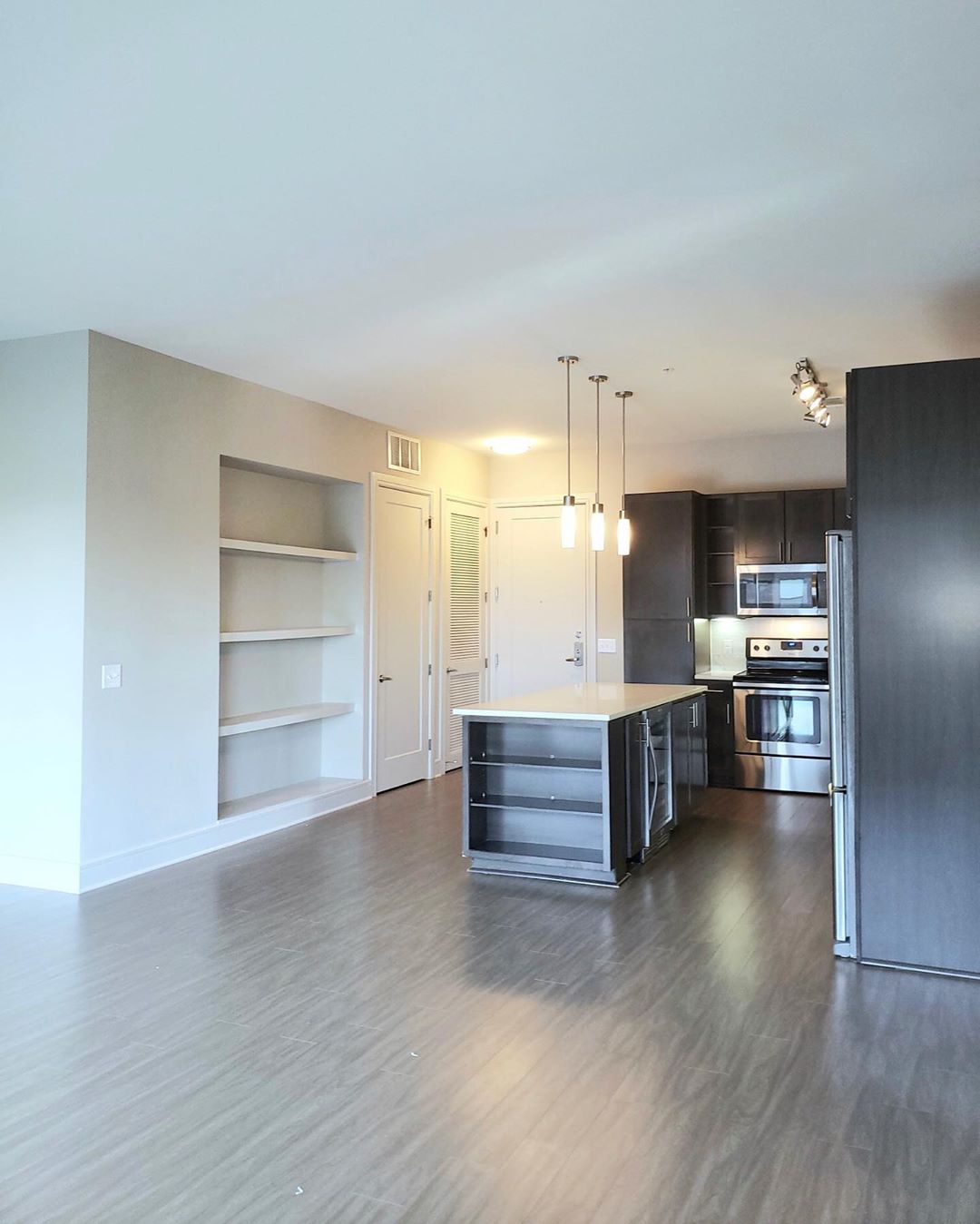
Photo via @knoxheightsapts
Of course, touring apartment buildings will be exciting! But make sure you slow down and really take a good look at your prospective new home—both inside and out—before you sign anything. What should you look for on apartment tours?
- Are parking lots or parking garages well-lit and close to the building?
- Are there any signs of damage or weird smells in the apartment building?
- Are there security measures in place to ensure resident-only entry?
- Are the floors, walls, countertops, and windows clean?
- Are appliances, lights, outlets, sinks, toilets, and showers in good working condition?
- Are there enough closets and storage spaces within the apartment?
For more ideas on what to look for, check out this apartment tour checklist.
Understand Your Budget & Other Expenses
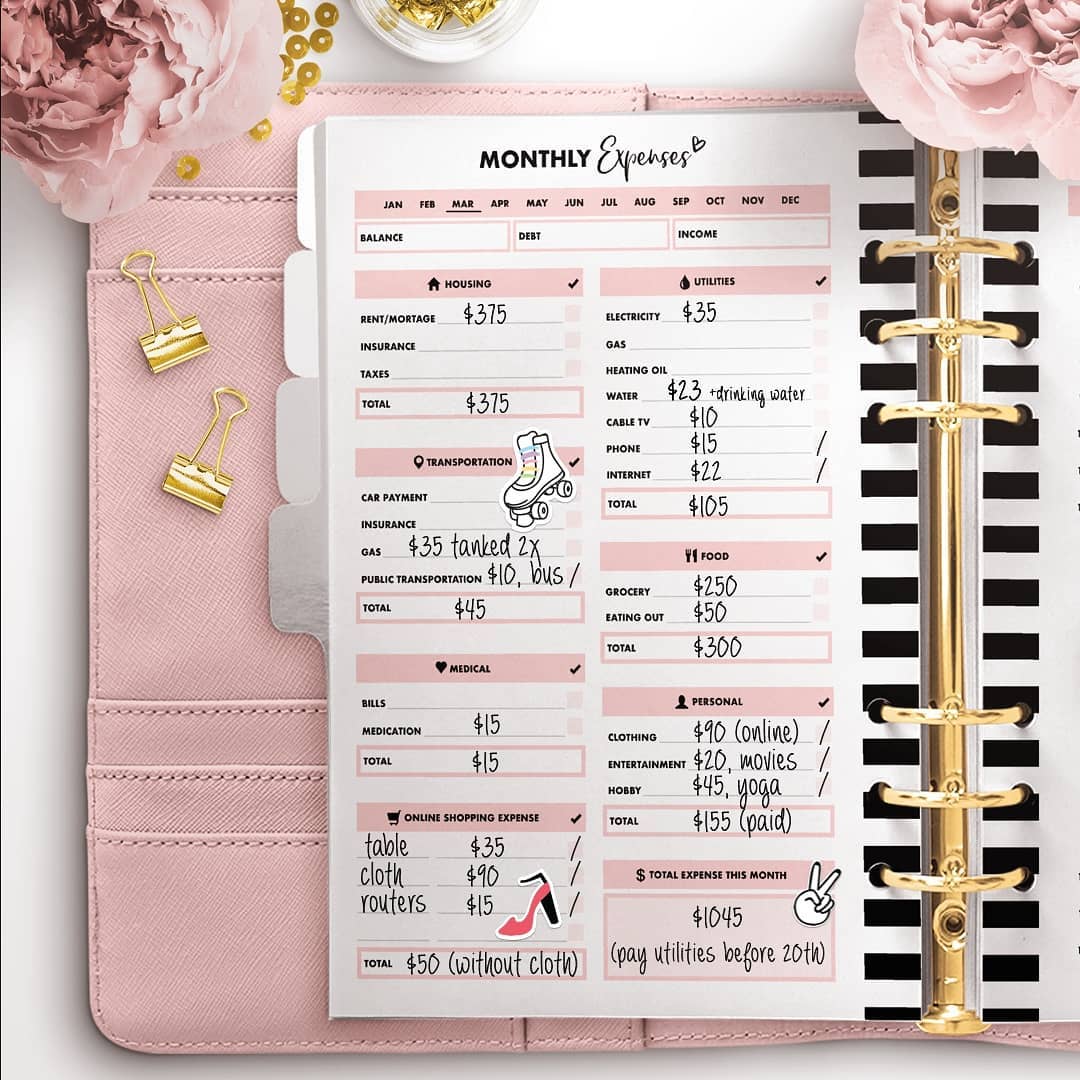
Photo via @printable_for_planners
Regardless of whether you’re moving into an apartment by yourself or living with roommates, you need to know how much you can afford to spend each month. Ideally, your rent should be at or under 30% of your after-tax income. But that’s not the only cost you have to factor into your budget. One of the biggest mistakes first-time apartment renters make is not accounting for other rental costs and living expenses, such as:
- Advanced Rent: Some rental companies may require you to pay a stipulated amount of rent—like the first and last month’s payments—in advance when you sign your apartment lease.
- Rental Deposits & Fees: There are several types of deposits and fees you may encounter when renting an apartment, including but not limited to leasing fees, damage deposits, community fees, pet rent, and utility fees. Some of these may be refundable, but most won’t be.
- Utilities: Depending on the apartment you choose, utilities like electricity, water, gas, trash, and cable/internet may or may not be included in your rent.
- Necessities & Fun Stuff: When putting together your budget, you need to factor in all types of living expenses, from necessities like groceries and gas to non-essentials like dining out and fitness memberships.
Check Out Your Potential Neighborhood
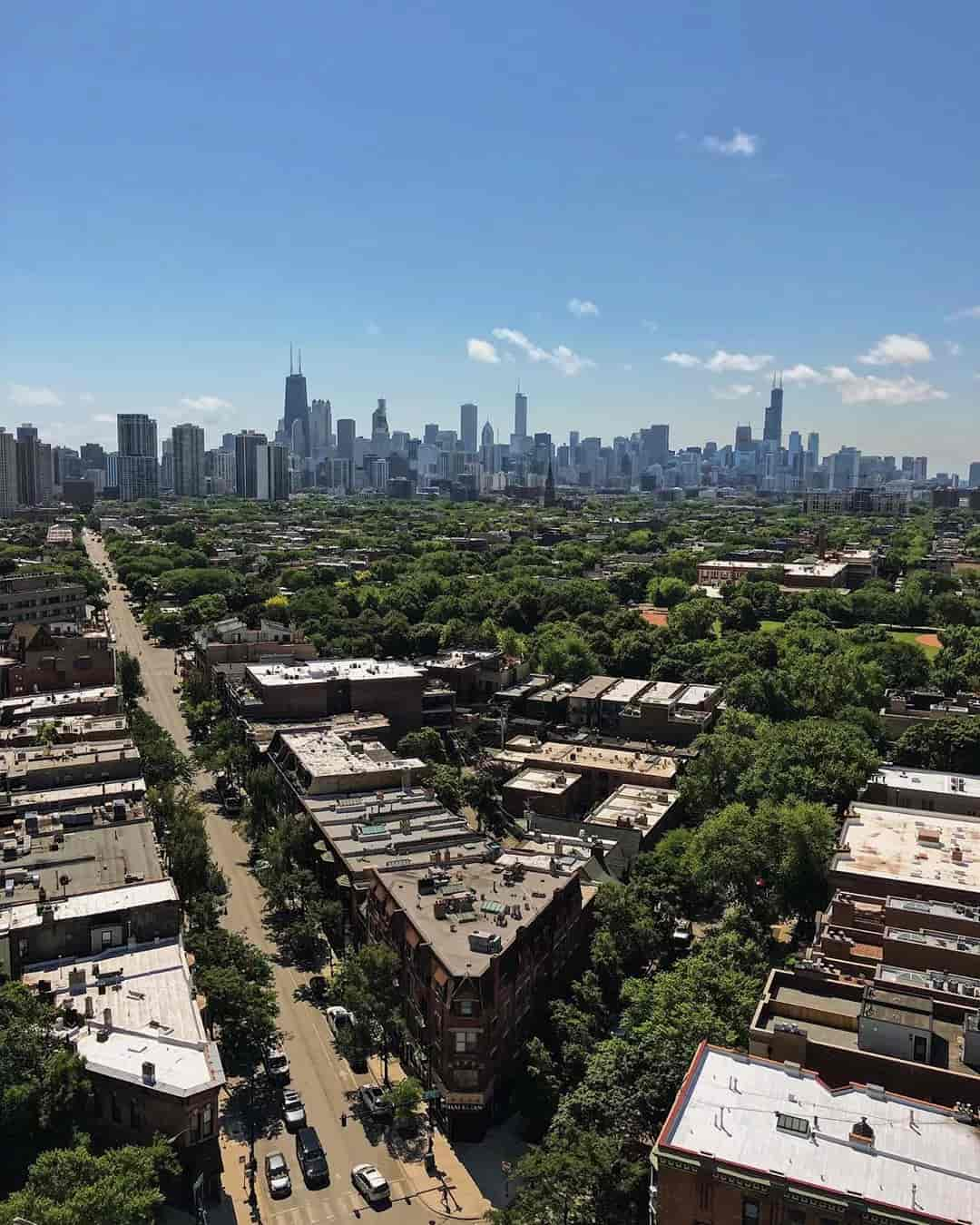
Photo via @lukekoczela
Especially if you’re moving to a new city, it’s a smart idea to explore the neighborhood or area you’re thinking about living in before choosing your apartment. Look up information on local crime rates. Walk around the area to get an idea of traffic and noise. Test the commute times to your university or office. Figure out where the nearest grocery stores, coffee shops, pharmacies, and banks are. Visit restaurants, bars, and shops in the neighborhood. This will help you determine if you’ll like living here!
Actually Read the Rental Agreement
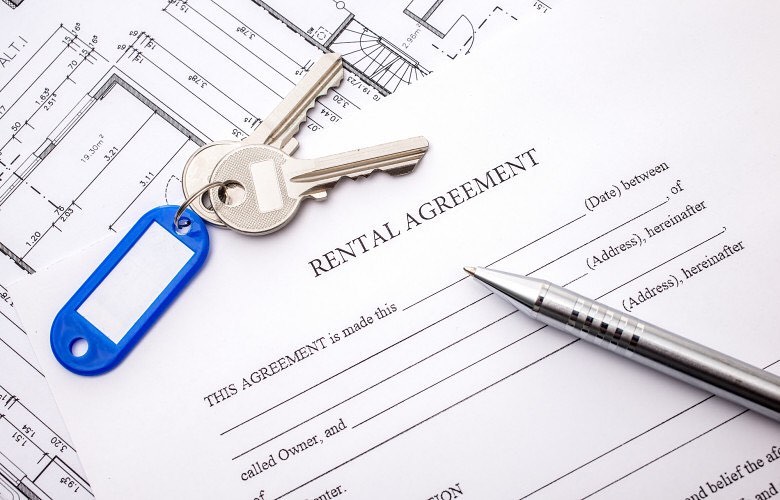
Photo via @recon_daily
Leasing documents can be lengthy, boring, and full of legal jargon, but it’s necessary to read them in full. These agreements include important information like payment due dates, community rules, maintenance obligations, terms for breaking your lease, and more. Keep in mind that rental agreements are legally binding, so ignoring a critical part could result in you having to deal with hidden costs and fees. If there’s anything you’re not sure about when reviewing your lease, ask the landlord or apartment manager and have them walk you through it.
Make an Apartment Shopping List

Photo via @mariechantal22
Moving into your first apartment means you’ll probably need to buy some household items. If you’re on a tight budget, though, you don’t need to get everything all at once. Stick to the most crucial things first—toilet paper, paper towels, soap, toiletries, shower curtain, towels, basic cleaning supplies, trash can, first-aid kit, dishes, silverware, and a few kitchen essentials for easy cooking. And, most importantly, make sure you have something to sleep on!
Download Our First Apartment Checklist Today!
Looking for an easy way to simplify your life? Download our First Apartment Checklist now to help you keep things in perfect order!
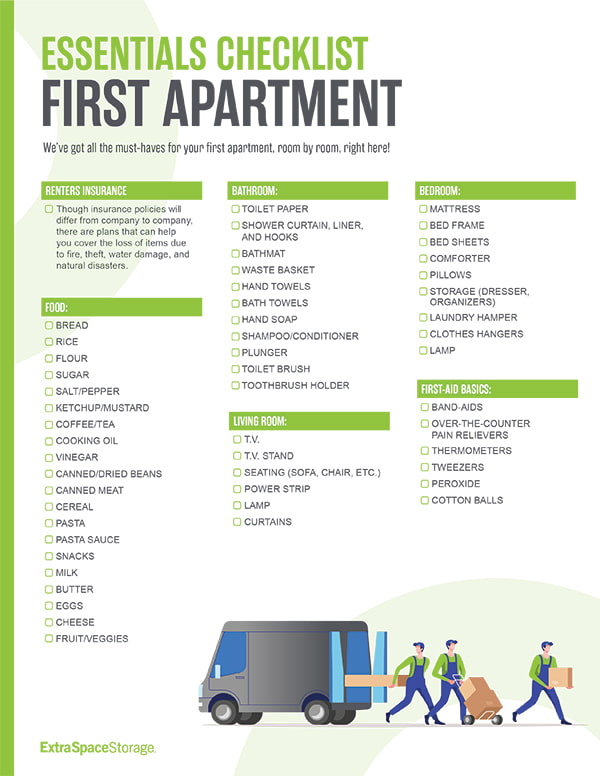
Pick Up a Few Household Tools
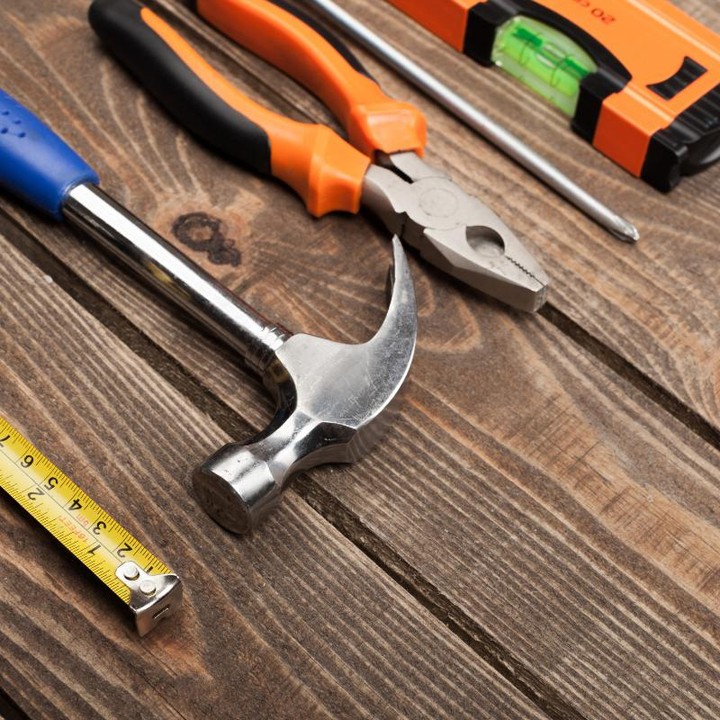
Photo via @thekdpgroup
In many cases, your apartment complex or landlord will provide maintenance services. However, you may run into situations where you’ll need a few tools handy. Basic household tools like a hammer, drill, screwdriver, pliers, tape measure, nails, and screws should be more than enough to get you started. In fact, you can typically find basic tool kits at stores like Lowe’s and The Home Depot for under $40.
Consider Getting Renters Insurance
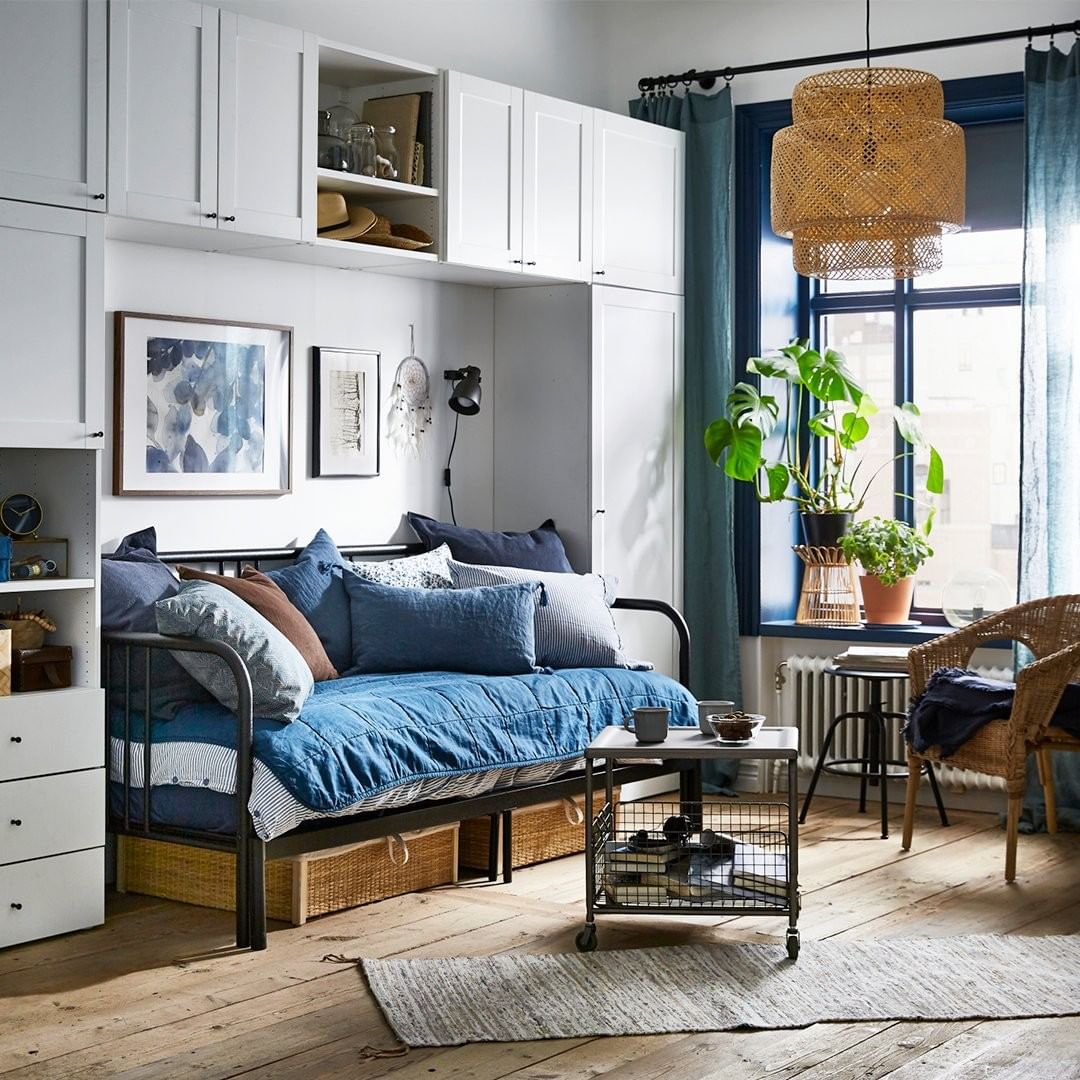
Photo via @ikeausa
While some apartment landlords will require proof of renters insurance before you move in, others won’t require it at all. That said, renters insurance can be a life-saver. Though insurance policies will differ from company to company, there are plans that can help you cover the loss of items due to fire, theft, water damage, and natural disasters. In addition, renters insurance is pretty affordable with the average around $17 per month. Even if it’s not required by your apartment, it’s worth considering!
Meet Your Neighbors
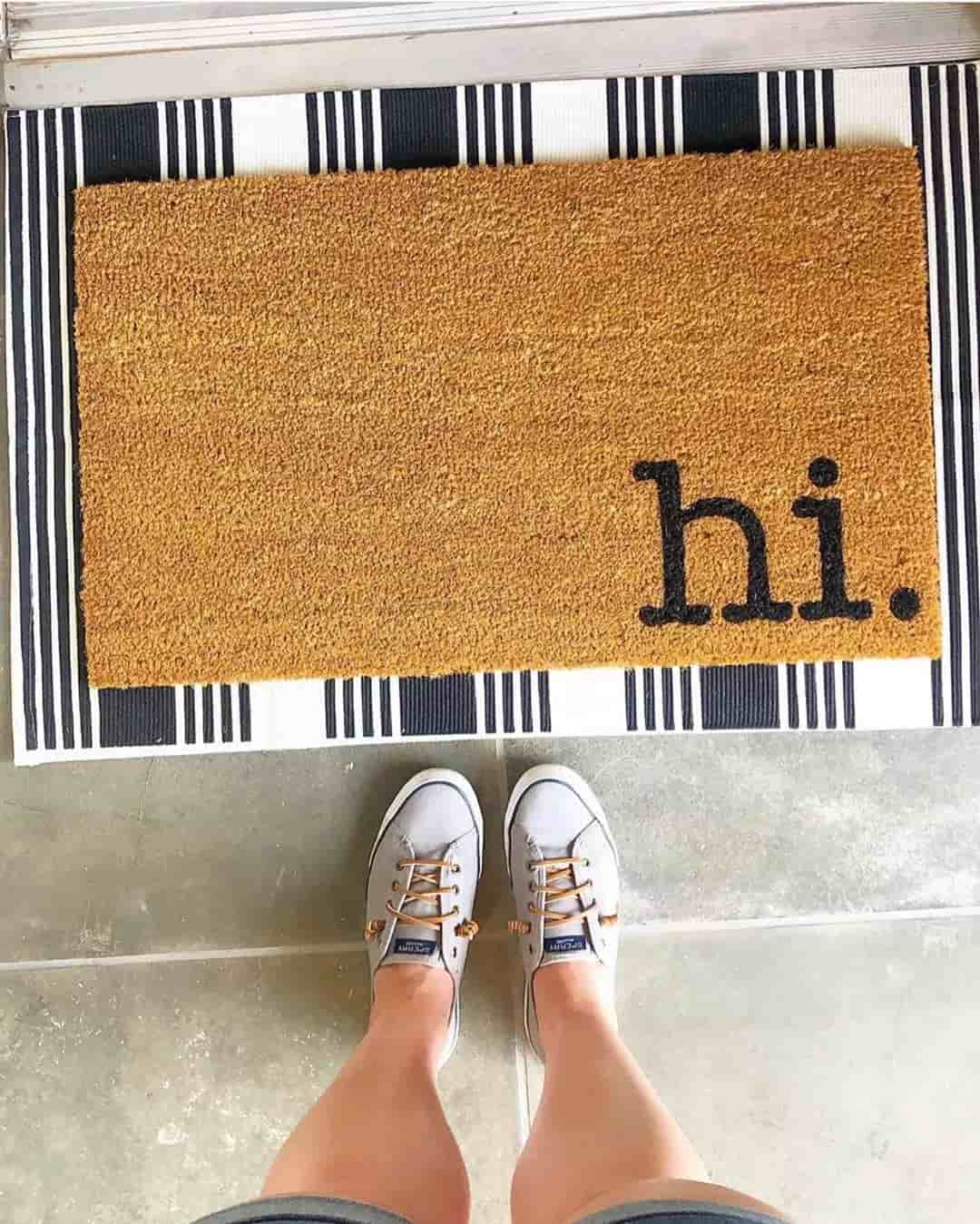
Photo via @blackandwheatco
One of the best things you can do when you move to a new apartment is get to know your neighbors. Not only does this make approaching them in the future easier should you need to talk to them about noise levels or ask them to watch for package deliveries, but it might also mean finding friends in a new city!
***
Need a place to store things that won’t fit in your new apartment? Extra Space Storage has affordable 5×5 and 5×10 storage units that are perfect for apartment renters. Find budget-friendly storage units near you!
